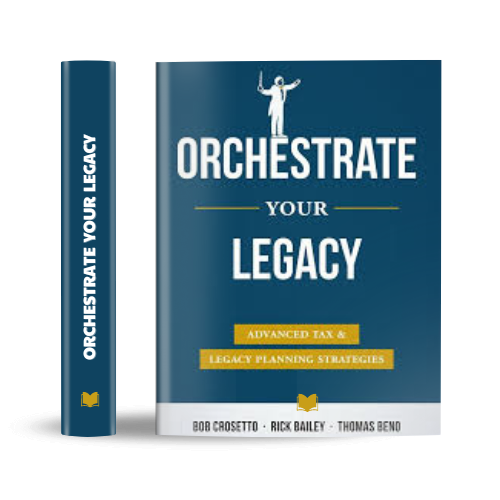Tax-Minimization Strategies
The OYL team will help you grow, access and protect your retirement income in the most tax-advantaged methods possible.
Tax-Minimization Planning
At Orchestrate Your Legacy, we understand the significance of tax-minimization strategies in wealth management for individuals, businesses, and estates. These strategies encompass a variety of approaches aimed at reducing tax liabilities and maximizing after-tax returns.
Tax-minimization strategies often involve leveraging different investment vehicles and structures to optimize tax efficiency. From tax-deferred accounts to tax-free investments, there are various options available to mitigate tax burdens and preserve wealth.
One key aspect of tax-minimization strategies is understanding the tax implications of different financial decisions. Whether it's managing capital gains, utilizing tax deductions and credits, or strategically timing transactions, careful planning can significantly impact overall tax outcomes.
Moreover, effective tax-minimization strategies not only focus on reducing current tax liabilities but also on creating tax-efficient income streams for the future. By incorporating tax-free growth and distribution strategies, individuals can enhance their financial security and preserve wealth for future generations.
At Orchestrate Your Legacy, we specialize in designing personalized tax-minimization strategies tailored to your unique financial situation and goals. With our expertise and guidance, you can navigate the complexities of taxation and optimize your financial outcomes while preserving and growing your legacy.

"Orchestrate Your Legacy"
GET YOUR COMPLIMENTARY COPY OF
Orchestrate Your Legacy will show you how a fine-tuned team of professionals can give you the clarity to safeguard and control your assets now and into the future.
Tax-Free Retirement Income Solutions
Creating Guaranteed Income for Life
Annuity Maximization
Key Questions to Ask Yourself about Taxes in Retirement
-
Are you familiar with alternative retirement saving options beyond traditional plans like a 401(k), IRA, or deferred compensation plan?
If not, you should explore various retirement saving avenues beyond conventional plans like a 401(k), IRA, or deferred compensation plan to diversify your portfolio and maximize tax advantages.
-
Have you allocated at least 25% of your retirement funds into tax-free accounts?
If not, you should consider reevaluating your retirement portfolio to ensure at least 25% of your funds are invested in tax-free accounts for enhanced tax efficiency and flexibility.
-
Have I optimized my investment portfolio for tax efficiency?
If you're not taking full advantage of available tax deductions and credits, you should review your financial situation to identify potential opportunities for reducing taxable income and lowering your overall tax bill.
-
Have I explored tax-deferred or tax-free investment options?
If your investment portfolio isn't structured for tax efficiency, you should assess your holdings and consider repositioning assets into tax-advantaged accounts or investments with favorable tax treatment to minimize tax liabilities and enhance after-tax returns.
-
Is my estate plan designed to minimize potential estate taxes?
If your estate plan doesn't include strategies for minimizing potential estate taxes, you should consult with an estate planning professional to explore various techniques, such as gifting, charitable giving, or trusts, to mitigate tax liabilities and preserve more of your wealth for future generations.
-
Do you possess penalty-free avenues to access retirement funds prior to reaching age 59 1/2?
If not, you should explore penalty-free options for accessing retirement funds before reaching age 59 1/2 to accommodate unforeseen financial needs or early retirement plans without incurring penalties.
